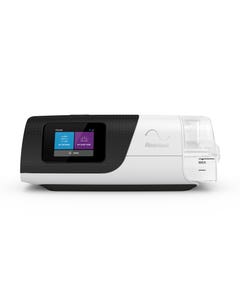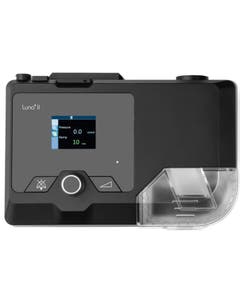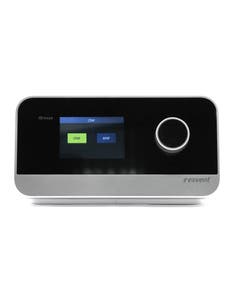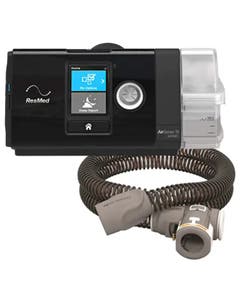Obstructive Sleep Apnea in Elderly
Getting older means an increased likelihood of sleep apnea. In general sleep can become more difficult with age and sleep apnea becomes a common sleep disorder, affecting nearly 20% of older adults. As we get older, muscles weaken, including airway muscles, which makes seniors more likely to experience sleep apnea.
How Does Obstructive Sleep Apnea Affect the Elderly?
As seniors lose sleep to sleep apnea, they will most likely experience more daytime drowsiness. Most seniors may see this as just one of the consequences of aging, rather than the result of a sleep disorder, and ignore it. But that means they may become more dependent on daytime naps to make up for lost sleep, which can take time away from their other daytime activities.
Sleep apnea just doesn’t leave seniors feeling drowsy, it may also impair their mental abilities. With lost sleep comes an increase in memory loss, poor attention, poor reflexes and a decline in overall physical performance. The risk for falls and accidents increases as sleep apnea robs seniors of their ability to perform basic functions in daily life due to sleep loss.
Impacts Of Obstructive Sleep Apnea on The Elderly
Dementia
Sleep disorders such as insomnia and obstructed sleep apnea affect dementia patients. Both disorders reduce healthy sleep which impacts brain health. If insomnia is not linked to other disorders such as depression, it may be a part of an individual’s dementia. Sleep loss among dementia patients is also often due to shorter periods of healthy sleep. Reduced sleep time can increase proteins linked to the development of Alzheimer’s disease.
Alzheimer's Disease
Several studies suggest that cognitively healthy elderly individuals with OSA may have altered levels of Alzheimer’s disease biological markers. Interruptions in breathing can reduce the levels of oxygen in the blood which could damage brain cells. In addition, OSA is associated with several other diseases, such as hypertension, cardiovascular disease, and depression, that can increase your risk for Alzheimer’s disease.
Depression and Mood Disorders
Disrupted sleep can lead to other mental health issues such as depression and mood disorders. Sleep loss begins to alter the brain chemistry and affect mood during the day. Feelings of hopelessness can become rampant, and erratic shifting moods including episodes of crying or anger can often dismissed as elevated emotions in old age.
What are the Risks of Death with Obstructive Sleep Apnea in Elderly?
Sleep apnea does increase the risk of death in the elderly. The impact of sleep apnea on health, in general, elevates already existing health problems in the elderly. High blood pressure, heart disease, and diabetes in elderly patients can become magnified from sleep deprivation which increases the risk of mortality.
A recent study shows CPAP, a common treatment for sleep apnea, brings longer life for those who suffer from chronic sleep apnea. The study shows the benefits of CPAP were tied to a dramatic 62% decline in the odds of death over 11 years of follow-up. What is even more encouraging is that these benefits are held even after factoring in risk factors such as diabetes, weight loss, heart disease, and high blood pressure.
Best Treatment for Sleep Apnea in the Elderly
It is critical that seniors exhibiting any of the symptoms of sleep loss get tested for sleep apnea. Home sleep tests can help accurately determine the occurrence of obstructive sleep apnea. Once diagnosed, a doctor can recommend PAP therapy options.
CPAP machines are the most common method for treating sleep apnea. By staying CPAP compliant, elderly patients will experience fewer apneas at night and improved sleep health. Other lifestyle changes can help improve healthy sleep. Avoiding alcohol and smoking, maintaining a consistent sleep schedule and avoiding blue light devices like computers and cell phones before bedtime can also help seniors get better sleep.
Buy CPAP Machines for Sleep Apnea Treatment in the Elderly
You can find CPAP machines to treat sleep apnea for the elderly at The CPAP Shop. Our knowledgeable staff will help you select the best CPAP machine based on your prescription. Your CPAP machine can then be quickly delivered to your front door. For any questions or assistance, give us a call at 866-414-9700 today!
Getting older means an increased likelihood of sleep apnea. In general, sleep can become more difficult with age, and sleep apnea becomes a common sleep disorder, affecting nearly 20% of older adults. As we get older, muscles weaken, including airway muscles, which makes seniors more likely to experience sleep apnea.
How Does Obstructive Sleep Apnea Affect the Elderly?
As seniors lose sleep to sleep apnea, they will most likely experience more daytime drowsiness. Most seniors may see this as just one of the consequences of aging, rather than the result of a sleep disorder, and ignore it. But that means they may become more dependent on daytime naps to make up for lost sleep, which can take time away from their other daytime activities.
Sleep apnea just doesn’t leave seniors feeling drowsy, it may also impair their mental abilities. With lost sleep comes an increase in memory loss, poor attention, poor reflexes, and a decline in overall physical performance. The risk for falls and accidents increases as sleep apnea robs seniors of their ability to perform basic functions in daily life due to sleep loss.
Impacts Of Obstructive Sleep Apnea On The Elderly
Dementia in Elderly
Sleep disorders such as insomnia and obstructed sleep apnea affect dementia patients. Both disorders reduce healthy sleep which impacts brain health. If insomnia is not linked to other disorders such as depression, it may be a part of an individual’s dementia. Sleep loss among dementia patients is also often due to shorter periods of healthy sleep. Reduced sleep time can increase proteins linked to the development of Alzheimer’s disease.
Alzheimer's Disease In Elderly
Several studies suggest that cognitively healthy elderly individuals with OSA may have altered levels of Alzheimer’s disease biological markers. Interruptions in breathing can reduce the levels of oxygen in the blood which could damage brain cells. In addition, OSA is associated with several other diseases, such as hypertension, cardiovascular disease, and depression, that can increase your risk for Alzheimer’s disease.
Depression and Mood Disorders
Disrupted sleep can lead to other mental health issues such as depression and mood disorders. Sleep loss begins to alter the brain chemistry and affect mood during the day. Feelings of hopelessness can become rampant, and erratic shifting moods including episodes of crying or anger can often be dismissed as elevated emotions in old age.
Symptoms of Sleep Apnea in Elderly
There are many common symptoms of sleep apnea in those who are older. They include:
- Loud snoring: While this is one of the most common symptoms of sleep apnea, it may not be present in all cases of sleep apnea.
- Gasping for air/waking up during sleep: This symptom may be harder to detect as you may not remember waking up in the middle of the night.
- Morning headaches: Starting your day off with a headache is a clear sign of sleep apnea. This headache often hinders you from your normal activities and can make you feel frustrated or moody.
- Insomnia: It is very common for insomnia to present if you have sleep apnea. These conditions often come hand in hand. Many people who are diagnosed with one of the conditions are later diagnosed with the other condition as well.
- Excessive daytime sleepiness: Even after a full night's sleep, you are still feeling tired. This can affect your daily activities including driving, working, or other hobbies.
What Are The Risks Of Untreated Sleep Apnea In Elderly?
Sleep apnea does increase the risk of death in the elderly. The impact of sleep apnea on health, in general, elevates already existing health problems in the elderly. High blood pressure, heart disease, and diabetes in elderly patients can become magnified from sleep deprivation which increases the risk of mortality.
A recent study shows CPAP, a common treatment for sleep apnea, brings longer life for those who suffer from chronic sleep apnea. The study shows the benefits of CPAP were tied to a dramatic 62% decline in the odds of death over 11 years of follow-up. What is even more encouraging is that these benefits are held even after factoring in risk factors such as diabetes, weight loss, heart disease, and high blood pressure.
What Is The Treatment For Sleep Apnea In The Elderly?
It is critical that seniors exhibiting any of the symptoms of sleep loss get tested for sleep apnea. Home sleep tests can help accurately determine the occurrence of obstructive sleep apnea. Once diagnosed, a doctor can recommend PAP therapy options.
CPAP machines are the most common method for treating sleep apnea. By staying CPAP compliant, elderly patients will experience fewer apneas at night and improved sleep health. Other lifestyle changes can help improve healthy sleep. Avoiding alcohol and smoking, maintaining a consistent sleep schedule, and avoiding blue light devices like computers and cell phones before bedtime can also help seniors get better sleep.
Buy CPAP Machines for Sleep Apnea Treatment in the Elderly
You can find CPAP machines to treat sleep apnea for the elderly at The CPAP Shop. Our knowledgeable staff will help you select the best CPAP machine based on your prescription. Your CPAP machine can then be quickly delivered to your front door. For any questions or assistance, give us a call at 866-414-9700 today!








